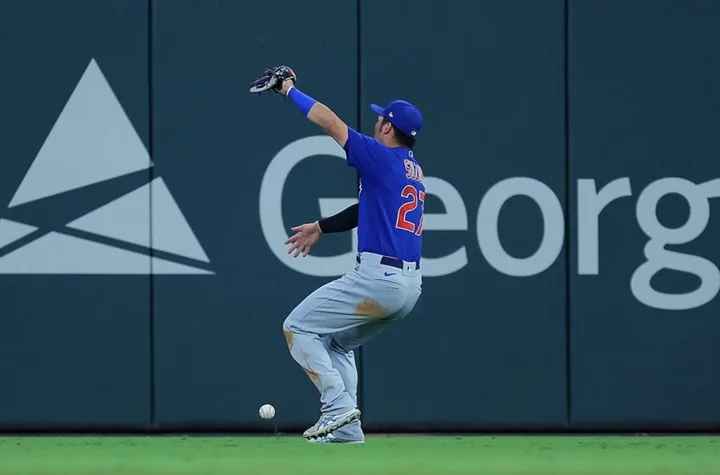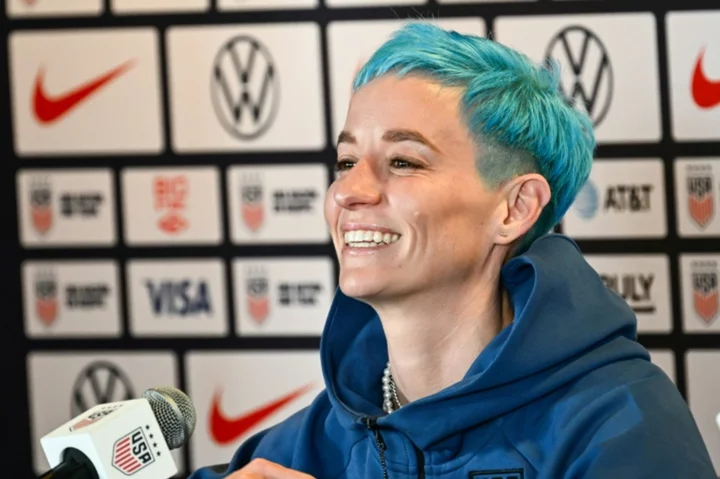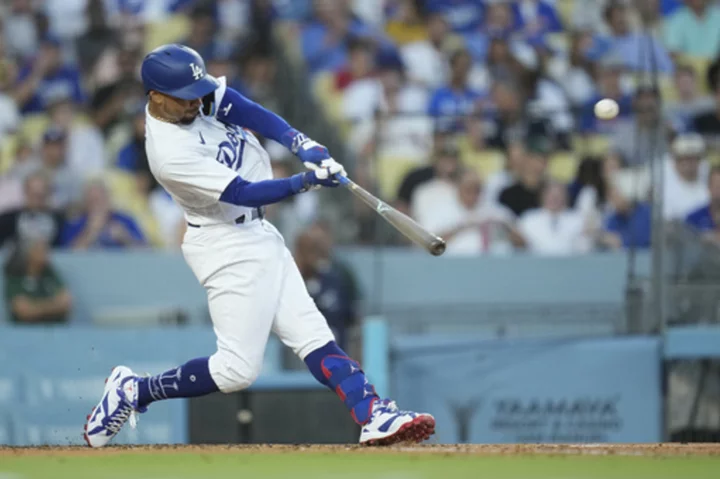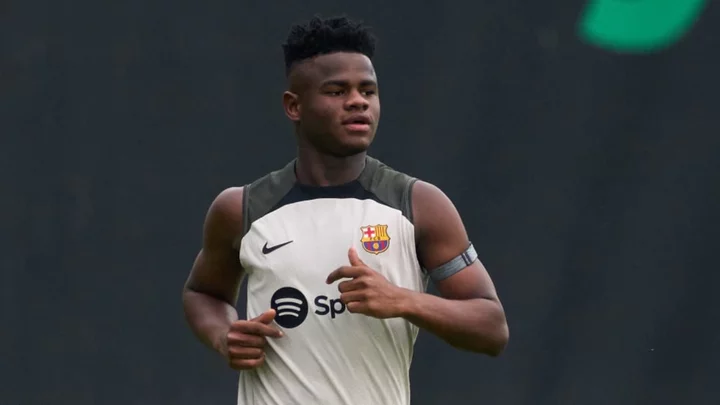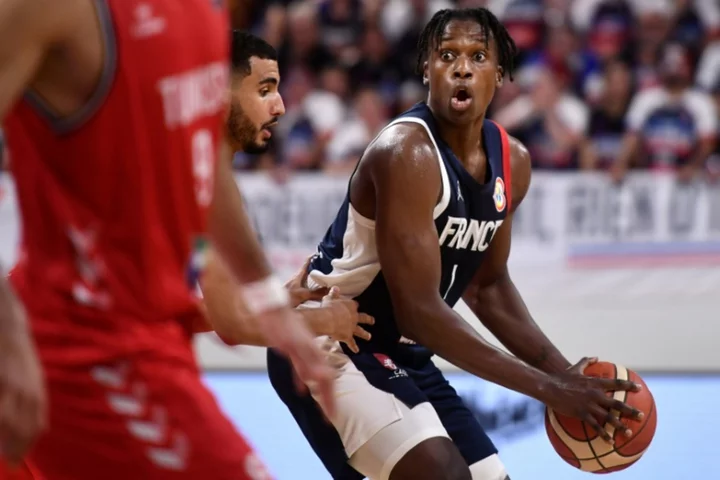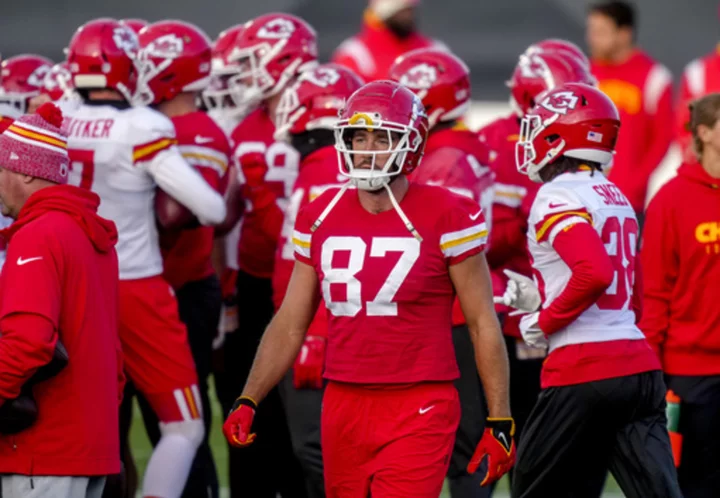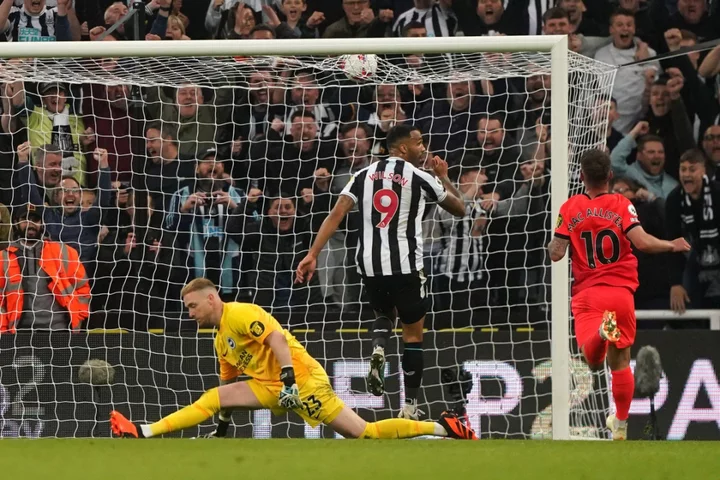This whole series for the Chicago Cubs versus the Atlanta Braves was a complete mess.
The Cubs are trying to make the postseason. But after an 0-3 sweep, their odds are continuing to fall. Reaching the postseason looks much harder.
After getting swept by the Braves and the Marlins taking two of three versus the Mets, Chicago is now down one game in the Wild Card after going through a massive slump.
No. 3 Chicago Cub most to blame for Braves sweep: Seiya Suzuki
Seiya Suzuki was one of the biggest reasons the Cubs got swept. After he dropped an error in the outfield during Game 1 of the series, the lead went from 6-5 to down one at 6-7.
Suzuki was hitting well this series, don't get me wrong, but his error gave the Braves the first game. Before the error, the Braves had a 32.6 percent chance of winning, but after the error, it skyrocketed to 53 percent, then to 85.6 percent.
In the series, he had five hits and a walk in 13 at-bats while collecting four RBIs. But his error might have cost them the series, as it seemed their momentum was zapped after it. Suzuki obviously felt bad after the event, but the fact is he cost them a game they should have been able to win, causing them to get swept.
Suzuki in 2023 has played in 135 games and has hit 20 home runs while knocking in 72 RBIs and hitting .282. If he continues to do well offensively going into the final series versus the Brewers, he could help take the Cubs to the postseason and make up for his error, but the odds don't favor them.
No. 2 Chicago Cub most to blame for Braves sweep: Cubs Offense
The whole Cubs offense collapsed during the series. They were unable to score when it mattered most despite hitting better than the Braves. Hitters were quite inconsistent and were unable to create runs due to a terrible lineup.
In Game 1, the Cubs lost 6-7, with the main factor of the loss coming from a Seiya Suzuki error. Overall, the team as a whole failed as they had thirteen hits and four walks, but they were only able to score six runs. The Braves had five fewer hits and still had more runs. With runners in scoring position, they went 6-16, leaving nine on base.
During Game 2, they failed even more, with Nico Hoerner going 0-5, Seiya Suzuki going 0-4, and even more batters like Jeimer Candelario going 0-3 and Miles Mastrobuoni going 0-4. Those four batters alone went 0-16.
Game 2 was an absolute failure for the Cubs. They had seven hits and three walks but were only able to score five runs, while continuing to strikeout, racking up ten. The lineup has much talent but continues to falter when it matters most, leaving seven runners on base, going 1-8 with runners in scoring position.
In Game 3, the only one able to get an extra-base hit was Suzuki. He was the only one that did much as the bottom four hitters in the lineup, Swanson, Candelario, Gomes, and Mastrobuoni all went cold. Those four went 0-14 with five strikeouts, a walk, and a hit-by-pitch.
In this final game, it wasn't even the offense that was the major problem. It was also the defense that allowed Marcus Stroman to give up two unearned runs. They left six runners on base, going 1-6 with runners in scoring position, but the whole lineup struggled, only getting six hits and two walks along with a hit-by-pitch to Swanson.
No. 1 Chicago Cub most to blame for Braves sweep: David Ross
David Ross is one of the main reasons the Cubs lost. For instance, instead of using a healthy starting pitcher during Game 3, they decided to use an injured Marcus Stroman, who has been pitching previously out of the bullpen for the past few games.
In the first game of the series, Ross decided to use both of his best relievers, Javier Assad and Jose Cuas. This played a major role in the terrible ending to the second game. Since they both pitched the night prior, Ross decided to put in a below-league-average player in Daniel Palencia, who not surprisingly allowed Acuña to knock the runners on second in, then he stole his 70th base before allowing Ozzie Albies to walk it off.
A few of his bullpen decisions were quite questionable, and even the lack of pinch-hitters was quite questionable too, as they failed to replace struggling hitters in situations where they needed to create runs.
The Cubs needed some big hits, but in Game 1 and 3, the best hitter was Seiya Suzuki. In those two games, they had two extra-base hits total, both of which came from Suzuki, and the rest of the team was only able to get singles, leaving many runners on base.
In this series, they went 8-for-30 with runners in scoring position, leaving 22 runners on base. One of the main reasons they couldn't score was because they couldn't stop being struck out, having seven in the first game and 10 apiece in the final two, leaving Atlanta with 27 strikeouts.
Prior to this series in Atlanta, manager David Ross said, "That's not a good team that just took 2 out of 3 from us. Or not our caliber of team I believe. We have to turn it around. It's on me. It's on the guys in the room," about the Pittsburgh Pirates.
That comment started much drama prior to this series which has been drawn into this series. The team complained about losing to a "bad team," but now they lose to a good team because they decided to have players on the team who aren't even good role players.
In the past 19 games, the Cubs have completely collapsed, holding a record of 6-13. The sad part is four of those wins came from the Colorado Rockies and one versus the Pirates and Diamondbacks.
When it comes to facing teams that are somewhat competitive, the Cubs aren't ready yet, at least not with Ross, because in the big situation you need a good manager who makes the right decisions, but Ross hasn't done that. Against teams over .500, they are only 33-46, and they have a Brewers series coming up, making it even more unlikely they will make the postseason now.
Pythagorean Win-Loss is used to estimate how many games a team should have won and lost. With the Chicago Cubs, they have an 88-71 record, but in reality, they have an 82-77 record, meaning they lost six games they should have won.

